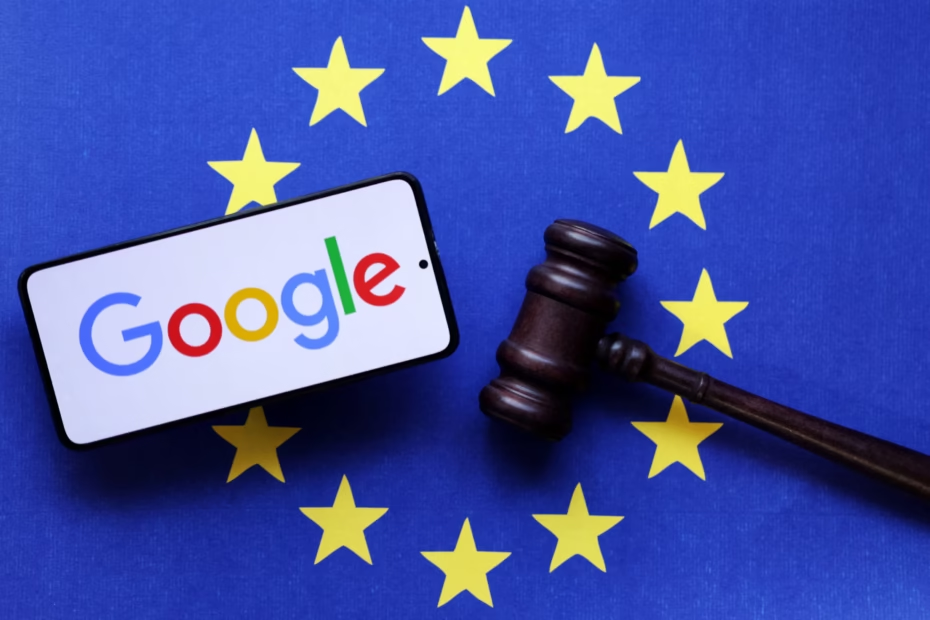The EU Fines Google Union has once again taken aim at one of the world’s biggest tech giants. This week, regulators in Brussels announced a fine of €2.95 billion (just under $3.5 billion) against Google, accusing the company of using its power in online advertising to push out rivals and give itself an unfair advantage.
What the EU Says Google Did Wrong
According to the European Commission, EU Fines Google leaned too heavily on its own ad tools. Regulators say the company’s ad exchange, known as AdX, was given an unfair edge through the way Google’s publisher server and ad-buying tools were set up. In plain language, that means Google allegedly stacked the deck in its own favor, leaving fewer chances for competitors to win ad business.
Officials argued this kind of behavior makes it harder for smaller players to compete and hurts publishers who rely on digital ads. It also raises costs for advertisers, which can eventually affect consumers.
The Warning from Regulators

EU leaders gave Google 60 days to stop these practices and to come up with changes that remove what they call “conflicts of interest” in its ad business. Teresa Ribera, the Commission’s executive vice president, put it bluntly: if Google doesn’t fix the problem, tougher action will follow.
“Digital markets exist to serve people and must be grounded in trust and fairness,” Ribera said. “When markets fail, public institutions must step in.”
How Google Responded
EU Fines Google quickly pushed back. A spokesperson said the company would appeal the ruling, arguing that its ad services are not anti-competitive and that businesses today have plenty of alternatives. The timing of the decision also sparked attention. Reports suggest the announcement was delayed from September 1 so it wouldn’t clash with trade talks between the U.S. and the EU.
Political Reactions
The fine has stirred political debate, especially in the United States. Former President Donald Trump criticized the EU, calling the penalties unfair to American companies like Google and Apple. He even suggested that if elected again, he would consider launching a Section 301 investigation to push back against what he views as biased treatment of U.S. tech firms.
At a recent dinner with tech leaders, including Google CEO Sundar Pichai and co-founder Sergey Brin, Trump was praised for his policies on artificial intelligence. The moment highlighted just how intertwined politics and big tech have become on both sides of the Atlantic.
Europe vs. America: Different Approaches
While Europe is cracking down hard on EU Fines Google, the company just caught a break in the U.S. A federal judge ruled that Google did use unfair tactics to keep its dominance in search but stopped short of forcing the company to sell off key products like Chrome or Android. That softer approach shows the difference in how regulators in Europe and the U.S. handle Big Tech.
What This Means for the Future
This is far from the first time Google has faced a massive fine in Europe. In 2018, it was ordered to pay $5 billion for using Android to reinforce its dominance. In 2017, it was fined over $2.7 billion for favoring its shopping service. This new case adds to the growing list of clashes between the EU and the Silicon Valley giant.
Looking ahead, the ruling could push EU Fines Google to rethink how it runs its ad business in Europe. If the company fails to satisfy regulators in the next two months, the EU may go even further — possibly forcing structural changes that reshape Google’s role in online advertising.

For other countries, this case may serve as a blueprint. Nations like India, Canada, and Australia are already exploring stronger rules for digital markets. If Europe succeeds in forcing meaningful changes, pressure could mount worldwide.
A Quick Look Back
2017: Google fined €2.42B for favoring its shopping service.
2018: A record $5B fine over Android dominance.
2025: Now, a $3.5B fine over adtech practices.
These cases show a clear pattern: EU Fines Google is not afraid to challenge tech giants head-on. And with digital advertising now a backbone of the internet, this fight could shape the way the online economy works for years to come.
